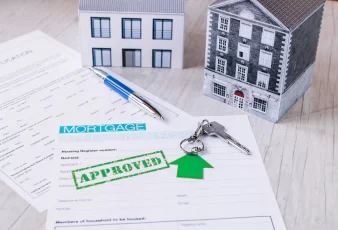- Set a realistic budget to ensure the affordability of the house and avoid going into debt.
- Research all available financing options to get the best deal for your financial situation.
- Put down a large down payment to reduce the amount of money borrowed and, in turn, the monthly payments.
- Create a debt management plan by speaking with a financial advisor.
- Avoid unnecessary debt to stay on track with a comfortable budget.
Purchasing a house is often the most significant financial investment one can make in their lifetime. While it is exciting, it can also bring financial challenges if not managed well. For most homebuyers, financing is a crucial part of the process. Proper financing can make all the difference regarding affordability and financial stability. However, avoiding going into debt while financing a house is essential. This post will offer tips for avoiding debt while funding a home.
1. Set a Realistic Budget

Setting a realistic budget is one of the most critical steps to take when financing a house. This will ensure you do not go into debt while funding the property. It is essential to establish a budget that reflects your financial status. You must consider factors like your monthly income, expenses, and other financial liabilities to create a budget that suits you.
You can also speak to a financial advisor to help determine a realistic budget for your financial situation. They can provide the best advice and insight into what you should expect and plan for when financing a home. Some banks even provide free consultations to help you get started.
2. Research Your Options
When shopping for financing options, you must do your due diligence and research available options. With so many other lenders offering varying interest rates and terms, comparing and determining which option is best suited for you is essential. Researching each lender’s background, interest rates, and terms can also help you avoid going into debt when financing a house. Here are some of the options:
a. Home Loans
Different lenders have different home loans to offer. When researching your options, comparing interest rates and repayment terms each lender provides is important. Comparing these packages can help you determine the best deal for your needs and financial situation.
b. Government-Backed Loans
Government-backed loans are an excellent option for first-time home buyers. These loans are typically offered at a lower interest rate and with more favorable terms than private lenders. For example, if you are planning to buy a house in Pennsylvania, consider the FHA program and look into the FHA loan requirements in PA to see if you qualify for a government-backed loan.
c. Private Lenders
You may also consider private lenders, such as banks and credit unions. When shopping around for a loan from a private lender, compare the interest rates and repayment terms offered by each one. Some private lenders may also offer more flexible financing options than what is available from government-backed loans.
d. Prepayment Mortgages
Some lenders offer prepayment mortgages, where you can pay off your mortgage before the agreed-upon term. This option allows you to save on interest payments and avoid going into debt. However, reading the fine print when considering this option is essential, as some lenders may charge a penalty for early repayment.
3. Consider Putting Down a Larger Down Payment

A larger down payment can significantly reduce the overall amount you need to borrow, reducing your monthly mortgage payments. Ideally, you should aim to put down at least 20% of the house’s purchase price. This will help you save money in the long run and reduce the risk of debt while financing the home.
4. Create a Debt Management Plan
Creating a debt management plan is essential to ensure you don’t become overwhelmed with debt when financing a house. Having a plan will help you prioritize paying off your debts and managing your finances effectively. You can speak to a financial advisor to help create a debt management plan that suits your financial situation. They can also advise you on the best strategies to avoid going into debt when financing a house.
5. Avoid Unnecessary Debt

A new home comes with additional expenses, such as furniture and decorations. It’s easy to fall into the trap of buying everything brand new without considering the effect on your finances. It is essential to avoid unnecessary debt by planning your expenses and making a list of what is a priority and what can wait. Doing this will increase your chances of staying debt-free when financing a house.
When financing a house, it’s essential to be aware of the possibility of going into debt. Fortunately, there are effective and practical ways to manage and mitigate this risk. By setting a realistic budget, researching your options, considering a larger down payment, creating a debt management plan, and avoiding unnecessary debt, you can successfully avoid going into debt while smart home buying. With the right strategy and financial planning, you can make this significant investment with peace of mind.
Read Also:




























